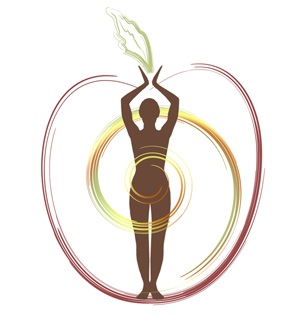Seasonal allergies: complimentary care
“It's bizarre that the produce manager is more important to my children's health than the pediatrician.” ~Meryl Streep
Aromatherapy
Essential oils are the extracted aromatic essence of common and rare plants, namely trees, fruits, flowers, and herbs. More than 150 essential oils are known to have been extracted, each with its own unique scent and healing property.
Essential oils act within the body pharmacologically (like drugs but safer), physiologically (benefit, stimulate, or adapt to specific systems), and psychologically (triggering a brain response).
Although essential oils are generally considered safe for home treatment, you should consult a qualified health practitioner if you are pregnant, use homeopathic remedies, have a chronic illness like high blood pressure or a serious health problem like epilepsy, are undergoing psychiatric treatment, or plan to use with babies or young children.
The aromatherapy benefits of essential oils are easy to obtain at home in a variety of ways. Oils can be added to baths, massage oils, steam inhalation, body and skin care products, mouthwashes, and compresses. Sometimes essential oils are enjoyed simply for their fragrance.
Essential oils that are helpful with hay fever include:
Cypress is an antispasmodic that is often used as a throat gargle. Several drops added to a vaporizer relaxes tense muscles and prevents coughing spasms.
Eucalyptus’ reputation as a powerful antiseptic, anti-inflammatory and decongestant, accounts for its use in the treatment of colds, coughs, sinusitis and infections. It has a calming effect and ability to open aid breathing.
Lavender, well known for its calming and relaxing properties, can be massaged into the chest to reduce spasms. Some hay fever or asthma sufferers may be allergic to lavender.
Peppermint’s uplifting and invigorating characteristics open up passages that ease breathing.
Roman Chamomile is calming and soothing to the nervous system, helps prevent spasms, and induces sleep. A few drops in a vaporizer or sprinkled on a light bulb is even gentle enough for children. Should not be used in the first trimester of pregnancy.
Tip: Drinking a glass of lemon water (juice of ½ a lemon or a few drops of lemon oil in a glass of warm water) first thing in the morning can regulate blood pressure, reduce phlegm, relieve indigestion, purify the blood and flush toxins from the body. Drink up!
Homeopathy
Contrary to allopathic medicine, homeopathy is based on the philosophy that minute doses of a substance that produces symptoms similar to the illness, triggers the body’s immune defenses. This is poplary known as the principle of “like cures like”. Although Samuel Hahnemann, an 18th century German physician, is credited with developing homeopathy as we know it today, it was Hippocrates (“the father of medicine”) who initially understood the philosophy.
Homeopathy follows a methodology that considers the individual’s (a) specific symptoms, (b) reaction to sickness, and (c) ability to heal for determining diagnosis and treatment.
An unusual aspect of homeopathy is that many of the substances used in remedies would be harmful if taken in their basic form. Remedies are diluted, however, and developed from plant, animal, and mineral origins and include snake venom, homey bees, coffee, and copper.
Although many doctors remain skeptical about its effectiveness, the value of homeopathy is proven by its worldwide popularity as a safe and effective treatment for many problems.
Euphrasia, the homeopathic version of eyebright, has been used since 1305 as a treatment for sore, watery, irritated eyes associated with hay fever sufferers.
Ayurveda
Ayurveda is a holistic system of medicine based on the philosophy that each person is uniquely individual, and that illness impacts the body and mind collectively. As the traditional medicine of Indian for more than 5000 years, Ayurveda is the oldest recorded medicine known to mankind.
Ayurvedic healing may incorporate the use of herbs, nutrition, cleansing, acupressure massage, breathing, yoga, Sanskrit and astrology. According to ayurvedic practitioner, Rose Parsad, “In Ayurveda, we usually start looking to why the allergy has occurred rather than at the symptom by itself!”
Acupuncture & Oriental Medicine
If you would like to go deeper than treating the symptoms, acupuncture or Oriental Medicine (OM) may be a great place to start.
Acupuncture looks at the flow of energy or “qi” through the body’s pathways. From this view, blockages in the body’s energy stream result in disease. Tiny needles are placed along the pathways to balance qi.
Oriental Medicine is concerned with the internal and external causes of disease rather than the symptoms. An emphasis is placed on rebalancing qi using any number of treatments including the use of herbs, moxibustion, breathing, cupping and nutrition.
Neti Pot
The neti pot, the cousin of the old-time nasal syringe, is a form of nasal irrigation that has gained tremendous popularity over the past few yours. Neti pots are fabulous for clearing and soothing clogged and irritated nasal passages.
Rather than trying to explain how to use a neti pot, here's a video ...
